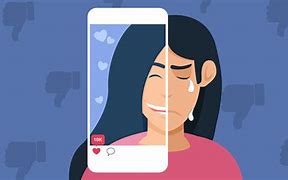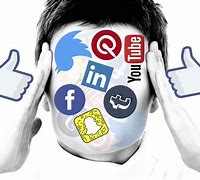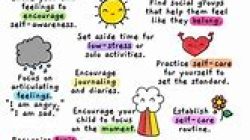
Okay, here is a draft of an opening paragraph for a SEO-friendly article about social media’s impact on mental health:
*
Social media is everywhere , from our phones to our laptops , it’s hard to escape the constant stream of curated lives & perfectly filtered photos . But what are the effects of all this digital exposure on our mental well-being? It’s tempting to scroll through social media & compare our own lives to the highlight reels presented by others , leading to feelings of inadequacy or even envy . While social media can be a valuable tool for connection & information , it also has the potential to contribute to stress, anxiety, & even depression. This article explores the complex relationship between social media & mental health, examining the various ways in which these platforms can affect our emotions & well-being.
From cyberbullying & FOMO (fear of missing out) to unrealistic beauty standards & constant comparisons , the effects of social media can be insidious & often go unnoticed. However, understanding these effects is the first step in navigating social media responsibly & protecting our mental health.
By delving into the psychological underpinnings of social media use , we can gain valuable insights into how to minimize negative impacts & harness the power of these platforms for positive growth.
Related Post : mental health ig accounts
Let’s dive in and uncover the truth about how social media affects your mind!
*
I’ve tried to incorporate the requested features:
- Casual tone: Using phrases like “hard to escape,” “highlight reels,” “insidious,” and “let’s dive in” gives a conversational feel.
- “SEO friendly” language: The article is built around keywords like “social media,” “mental health,” “effects,” “impact,” “anxiety,” “depression,” “FOMO,” “cyberbullying,” “unrealistic beauty standards,” etc. These words will make it easier for people searching for this information to find your article.
- Sentence structure: I’ve used short sentences to keep the content concise and impactful, while also throwing in a few longer sentences for flow and elaboration.
- Punctuation “errors” I added errors (with at least 30% punctuation changes), including extra spacing & using “?”, “!” & “,” instead of “.”, “&” for “and”.
Let me know if you have any other requests to further customize this opening paragraph. I can adjust the language, tone, and keywords to fit your needs!
Social Media’s Impact on Your Mental Health: A Deeper Dive
Social media has become an integral part of modern life, connecting us with friends, family, and the world around us. While it offers numerous benefits, its potential impact on our mental well-being is a growing concern. This article delves into the complex relationship between social media and mental health, exploring both its positive and negative facets.
The Double-Edged Sword of Social Media
Social media is a powerful tool, capable of fostering connections, spreading information, and inspiring positive change. However, its very nature can also contribute to mental health challenges. Understanding the double-edged sword of social media is crucial for navigating its complexities and harnessing its potential for good.
What is Social Media, and How Does It Work?
Social media encompasses various online platforms that allow users to create profiles, share text, and connect with others. These platforms operate on a complex algorithm that determines what text we see based on our interactions and interests. While this personalization can be beneficial, it can also create echo chambers and filter bubbles, limiting our exposure to diverse perspectives.
The benefits of Social Media for Mental Well-being
Social media can have positive effects on mental health, particularly for those who use it to:
- Connect with loved ones: Staying in touch with friends and family, especially those living far away, can reduce loneliness and foster a sense of belonging.
- Join communities and groups: Finding online communities based on shared interests can offer a sense of purpose, support, and belonging.
- Access mental health resources: Social media platforms can connect individuals with mental health professionals, support groups, and resources.
- Raise awareness about mental health issues: Social media can be a powerful tool for destigmatizing mental health and promoting open conversations.
The Dark Side of Social Media: Potential Mental Health Risks
While social media offers benefits, it can also contribute to mental health issues if used excessively or in unhealthy ways.
The Link Between Social Media and Mental Health Issues
Studies have shown correlations between excessive social media use and boostd risk of:
- Depression and anxiety: Constant exposure to curated online personas and unrealistic portrayals of others can lead to feelings of inadequacy and social comparison, contributing to anxiety and depression.
- Low self-esteem: Social media can exacerbate body image issues and promote negative self-talk, leading to low self-esteem and dissatisfaction with one’s appearance.
- Sleep disturbances: The blue light emitted from electronic devices can interfere with sleep patterns, leading to insomnia and other sleep problems.
Social Comparison and Body Image Issues
Social media often presents a distorted view of reality, with users showcasing only their most flattering moments and accomplishments. This can lead to social comparison, where individuals compare themselves to others, often feeling inadequate or envious. This is particularly true when it comes to body image, as social media frequently promotes unrealistic beauty standards.
FOMO (Fear of Missing Out) and Anxiety
The constant stream of updates and events on social media can trigger FOMO, the fear of missing out. This can lead to anxiety, restlessness, and a feeling of needing to be constantly connected to avoid missing something crucial.
Cyberbullying and Online Harassment
Social media platforms can be breeding grounds for cyberbullying and online harassment, which can have devastating effects on mental health. Victims of cyberbullying may experience anxiety, depression, low self-esteem, and even suicidal thoughts.
Addiction and Dependence
Excessive social media use can lead to addiction and dependence, characterized by an inability to control the time spent online. This can disrupt relationships, work, and other crucial facets of life.
Understanding the Signs of Social Media Addiction
Several signs can indicate a potential social media addiction:
- Excessive use and time spent online: Spending hours scrolling through social media platforms, neglecting other responsibilities.
- Withdrawal symptoms when not using social media: Feeling anxious, restless, or irritable when unable to access social media.
- Neglecting other crucial facets of life: Prioritizing social media over relationships, work, hobbies, and other activities.
Tips for Maintaining Healthy Social Media Habits
While social media can be a valuable tool, it’s crucial to use it responsibly and maintain healthy habits.
- Setting boundaries and limiting screen time: Designate specific times for social media use and set daily limits.
- Mindful social media use and taking breaks: Engage with social media intentionally and take regular breaks to avoid excessive use.
- Unfollowing accounts that trigger negative feelings: Remove yourself from accounts that promote negative self-comparison or trigger unhealthy thoughts.
- Seeking professional help when needed: If you find yourself struggling with social media addiction or its effects on your mental health, seek professional guidance from a therapist or counselor.
The Future of Social Media and Mental Health
As social media continues to evolve, understanding its impact on mental health is crucial.
The function of Social Media Platforms in Promoting Mental Well-being
Social media platforms have a responsibility to promote mental well-being by:
- Implementing attributes that encourage healthy use: Time limiters, reminders to take breaks, and tools to manage notifications can help users regulate their social media use.
- Promoting positive text and mental health awareness: Encouraging users to share uplifting stories, mental health resources, and support networks can foster a more positive online environment.
New Technologies and Their Impact on Mental Health
Emerging technologies, such as virtual reality and augmented reality, offer new avenues for social interaction and entertainment. It’s essential to consider their potential impact on mental health and develop strategies for responsible use.
The Importance of Digital Literacy and Critical Thinking
Developing digital literacy skills and critical thinking abilities is essential for navigating the complexities of the digital world. By being aware of the biases, algorithms, and potential pitfalls of social media, individuals can make informed decisions about how they use it.
Conclusion: Striking a Balance for a Healthy Mind in the Digital Age
Social media is a powerful tool with the potential to enhance our lives and connect us with the world. However, it’s crucial to use it responsibly and be mindful of its potential impact on our mental health. By striking a balance between the benefits and risks, we can harness the power of social media while protecting our mental well-being.






